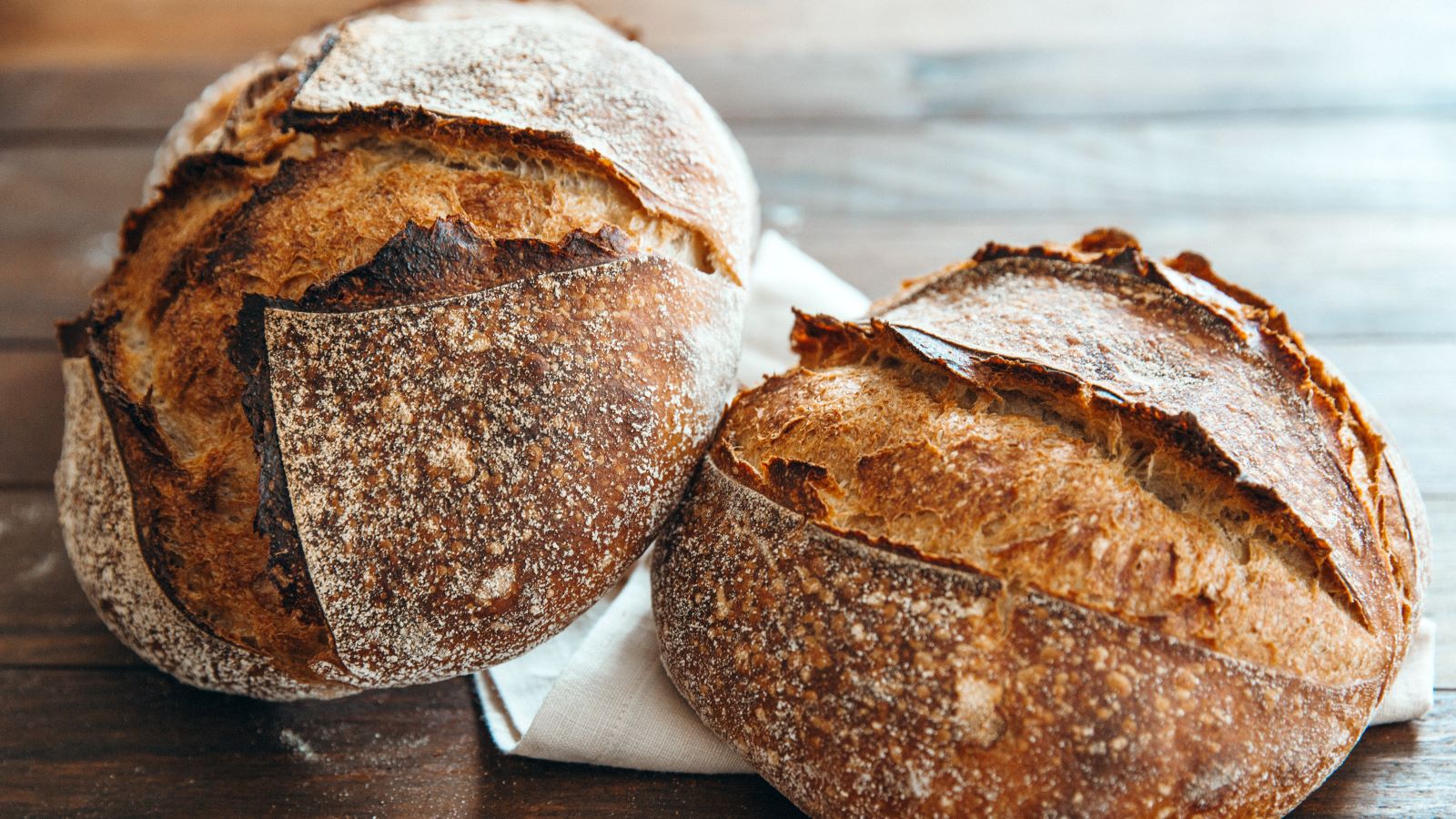<< Back
Is Sourdough Bread Healthy? Here’s What You Need to Know

May 17, 2025
It’s the bread that launched a thousand pandemic starters — and it’s still going strong. But while sourdough has earned points for flavor and texture, what about its health benefits?
We asked Ulysses Wu, MD, with Hartford HealthCare, to help us break it down. And like a good loaf of bread, the answer isn’t one-size-fits-all.
First, what makes sourdough unique?
Unlike breads made with commercial yeast, sourdough gets its rise from a natural fermentation process. It’s made from a “starter” — wild yeast and bacteria fermented with water and flour.
“This may change the nutritional profile of the bread,” says Dr. Wu. “It’s not just about flavor – there could also be health benefits that come from the way sourdough is made.”
3 potential health benefits of sourdough
Turns out, there’s more to sourdough than a delicious crust. Here are a few of the reasons for its healthy reputation.
1. It’s easier to digest.
That fermentation process doesn’t just make sourdough taste better – it also makes it easier on your stomach.
“The long fermentation process partially breaks down gluten and phytic acid, a compound that could block mineral absorption. For many people, that makes sourdough easier on the stomach,” Dr. Wu notes.
But that doesn’t mean it’s gluten-free.
“Anyone with celiac disease or a true gluten intolerance still shouldn’t eat sourdough,” he adds. “But for those with a mild sensitivity, it might be less irritating than other bread.”
> Related: Nutrition Smack Down: Healthy Breads
2. It won’t spike your blood sugar.
Can’t eat white bread because of your blood sugar? Sourdough might offer an alternative.
“That’s another win for the fermentation process,” says Dr. Wu. “It may have a lower glycemic index, which could help with blood sugar control.”
Sourdough causes a slower rise in blood sugar compared to white or even some whole wheat breads. That’s good news if you’re managing diabetes or trying to avoid blood sugar spikes.
And more good news – sourdough will also keep you feeling full loner, which can be helpful for anyone trying to cut down on snacking.
“The fermentation process may slow down how your body digests and absorbs the carbohydrates,” says Dr. Wu. “That’s one reason sourdough might keep you feeling full longer.”
3. It’s high in prebiotics.
You won’t find live probiotics in baked sourdough, but it does contain prebiotics, which act like fuel for the healthy bacteria already in your gut.
“A healthy microbiome does more than just support digestion,” Dr. Wu says. “Because the microbiome is thought to impact so many different functions, feeding it properly may improve your overall health.”
But not all sourdoughs are the same.
Some commercial sourdoughs skip the long fermentation process and use added yeast or dough conditioners to speed things up. Others are made with refined white flour, which strips away fiber and nutrients.
“When buying sourdough, look at the ingredient list,” says Dr. Wu. “The best versions have just flour, water, and salt, and ideally use whole grain flour for added fiber. If you’re making sourdough from scratch, just be careful – these can get contaminated.”
> Want more health news? Text StartHere to 85209 to sign up for text alerts
How does sourdough compare to other breads?
Here’s how it stacks up:
- White bread: Highly processed and often lower in nutrients than sourdough.
- Whole wheat bread: This is often higher in fiber and other nutrients than sourdough, but can be harder to digest and has a higher glycemic index.
- Multigrain bread: Short answer? It depends. Some multigrain breads are mostly white flour with a sprinkle of seeds, while others are packed with fiber, vitamins and minerals.
- Gluten-free bread: These are essential for those with celiac disease, but often highly processed.
- Sprouted grain bread: High in fiber, protein and vitamins, this is one of the best options out there.
“There are plenty of great bread options available,” says Dr. Wu. “And even more that aren’t so great. But if you’re worried about digestion or blood sugar, sourdough may be the right choice.”
So go ahead – grab your starter, and pick up a new hobby making sourdough bread. It’s all the rage.